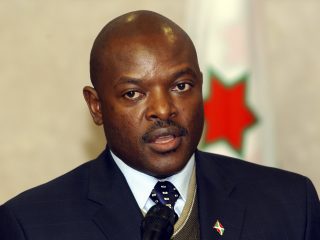The parliament of Burundi passed a legislation on Tuesday, January 21, 2020, which offers a one-off sum of $530,000 to President Pierre Nkurunziza as he prepares to leave the office.
The law states that at the end of the mandate or term, the president will receive “a luxury villa built with public funds in the location of their choice within five years.” Also, “one-off allocation of one billion Burundian francs ($530,000) will be given to the president.”
The Burundian legislation adopted the new law with 98 votes for and two against. The parliament justifies this package for President Nkurunziza because he is the only candidate to assume the office through election via universal suffrage, unlike other former heads of state that came to power through peace deals or a military coup.
Minister of Justice Aimee-Laurentine Kanyana, while speaking to the national assembly said that “a president who came to power via the simple consensus of a group of politicians does not have the same regard as one who was democratically elected.”
The retired president will also get the same benefits as that of a serving vice president for seven years after he/she steps down. Similarly, the allowance is equivalent to what legislators get for the rest of their life.
In an interview with AFP news agency, a diplomat in Burundi who pledged anonymity said: “the benefits that will be given to a president at the end of his mandate are exorbitant if one takes into account the crisis in the country, but it is a positive measure as it seems to indicate very clearly that Nkurunziza will in fact not run for the presidency.”
Similarly, several Burundians have mixed feelings about the bonuses awarded to Nkurunziza. Whilst some feel it is appropriate for a president who served the country with the highest number of responsibilities, others are not in support of the exorbitant package.
The allocated one billion Burundian francs ($530,000) is a fortune in Burundi where more than 65 percent of its citizens live in poverty, 50 percent of the country is food-insecure according to the United Nations’s World Food Programme (WFP). In a report by Humanitarian Response Plan (HRP), the level of food insecurity is almost twice as high as the average for sub-Saharan African countries, with about 1.77 million people in need of humanitarian assistance in 2019.
As one of the poorest countries in the world, landlocked Burundi faces several underlying issues like a poor educational system, bad transportation networks, unemployment, and overburdened utilities amongst others which restricts the economic growth in the East African nation.
Climatic hazards, the resurgence of epidemics, access to water and sanitation also weighs heavily on the country. In a report by the WorldBankGroup, less than 5 percent of the population has access to electricity while agriculture which is the main source of employment with nearly 80 percent of the population, does not generate enough income and contributes only 40 percent of the GDP.
In view of the current crisis and state of the Burundian economy, the parliament should subscribe to readjusting the “golden parachute” package approved for the retired president and create provisions for the allocated funds to be affixed into different lagging sectors in the economy, as this will lead the country to exceptional growth.








